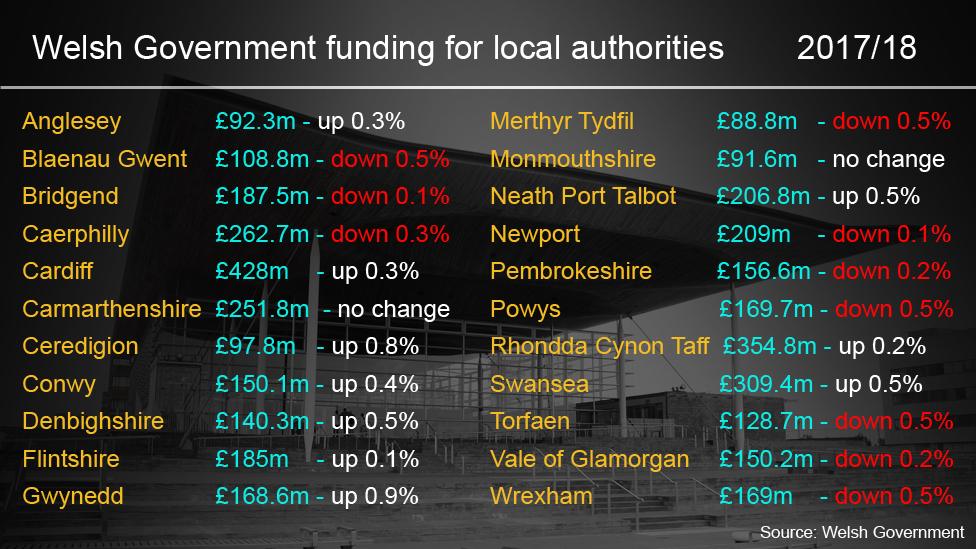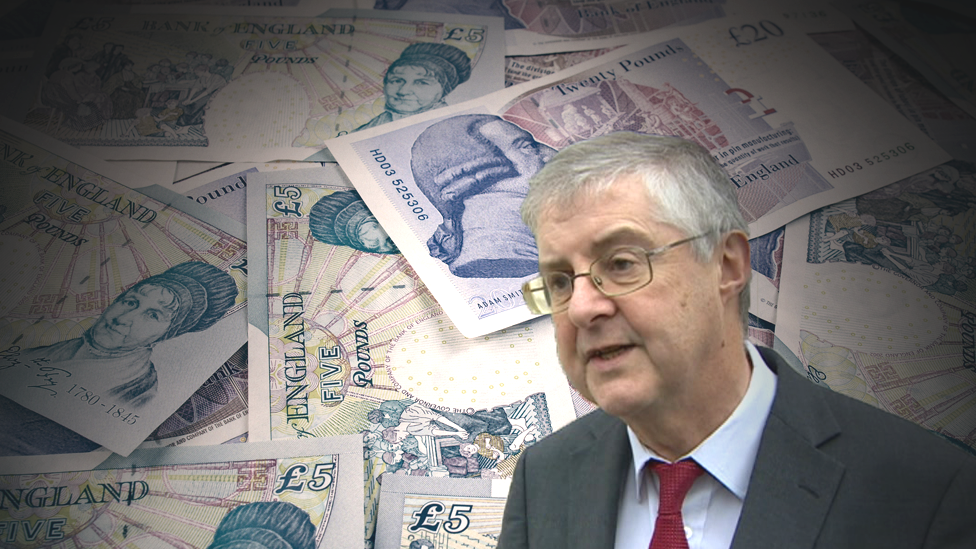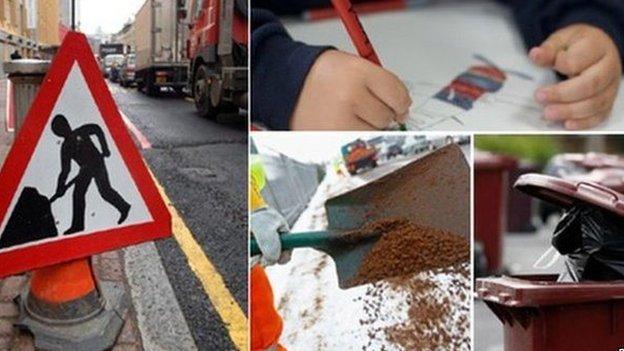Council budgets see first cash increase for years from Welsh Government
- Published
Steve Thomas said the local government settlement would provide "some respite"
Many local councils will see their first increase in Welsh Government funding since 2013-14 under plans set out by Finance Secretary Mark Drakeford.
A total of £4.1bn will be divided between Wales' 22 local councils, a cash increase of £3.8m on 2016-17.
Gwynedd sees the largest increase at 0.9%, but ten councils will see a cut.
Worst hit are Blaenau Gwent, Merthyr Tydfil, Powys, Torfaen and Wrexham, who face the maximum reduction of 0.5%.
Once inflation is taken into account the overall funding pot amounts to a real terms cut compared to the year before.
Council budgets are made up of a grant from Welsh Government, money raised through council tax, borrowing, and charges for services.
A row over large cuts for some rural councils last year has resulted in a change in the formula used by ministers, with smaller variations between each council's settlement.
Top-up fees have been allocated to some authorities to make sure none of them suffer a cut of more than 0.5%.
Finance and Local Government Secretary Mark Drakeford said: "No council will have to manage on less than 99.5% of the cash provided to them last year.
"When added to the other sources of income available to them, many councils will be able to increase their spending next year."

Later, Mr Drakeford told BBC Wales that local authorities should use an "18 month period of relative stability" to prepare for "harder choices and more difficult times ahead".
They should not "sit back and have a breather because for one year things are less awful than they have been", he said.
Speaking to The Wales Report programme about the prospect of council tax rises next April, he added: "I expect [councils] to weigh up what I know are some competing priorities.
"They must make a contribution to public services through the council tax (and), they must think of those hard-pressed citizens who have to bear the burden of it."
Earlier, the Welsh Local Government Association (WLGA)'s chief executive Steve Thomas said the settlement was "challenging but fair", and warned that councils would still have to make cuts.
"For many local authorities, there will be big choices to make," he said.
"What we have got is a sensible budget and, while everybody will take that view, there won't be any dancing in the streets."
There had been strong lobbying from local government ahead of the budget after councils had complained of losing out to health in recent years.
An official from the WLGA warned earlier in October that Welsh councils could see their running costs increase by £200m over the next few years.
- Published18 October 2016

- Published8 October 2016
